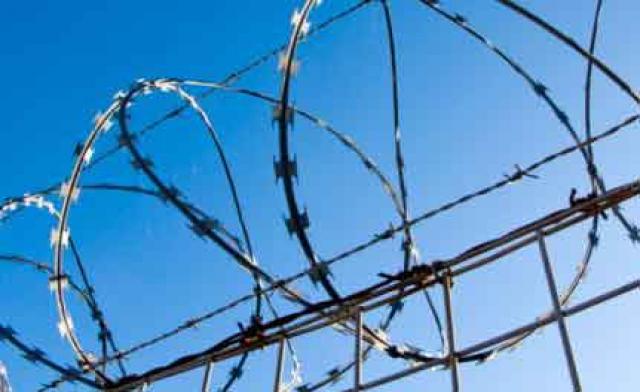Salwa Mehrez, one of the 100 prisoners pardoned on Wednesday who was detained in the Itihadiya Palace protests case, was freed Saturday, after her release was delayed by prison authorities.
The prison authorities had claimed her name had been misspelled in the initial presidential statement, and as such should be corrected by the same entity.
Her case has raised controversy as human rights lawyers were critical of the Ministry of Interior’s response, saying there had only been one person named ‘Salwa’ in the case.
Although the presidential pardon for 100 prisoners was issued five days earlier, seven pardoned prisoners remain behind bars, as their release is controlled by prison authorities, affiliated with the Interior Ministry.
According to lawyer Ragia Omran from the National Council for Human Rights (NCHR), the reason behind the delay in implementing the pardon in these cases comes from “a bureaucratic evaluation of their legal status”.
The presidential pardon stipulated that it included prisoners who had received final sentences in cases related to the Protest Law and assaults on police officers, in addition to several cases for health and personal reasons.
“However, it seems that the ministry is a little hesitant about prisoners who have more complicated cases than just a final verdict,” Omran told Daily News Egypt Sunday. “The presidential pardon should have confirmed that the names on the list should be released despite their exceptional legal statuses.”
Seven cases highlight those exceptions. For instance, detainee Asmaa Abdul Aziz is under remand, meaning that she has not yet received a final verdict; however, she suffers from a chronic illness.
In another case which Omran finds illogical, two female prisoners, Menna Mostafa and Abrar Al-Anany, were pardoned. However, the Mansoura prison authorities refused to release them because a date has been set for an appeal session on their two-year prison term.
“Their appeal is in the same case they have been pardoned for, but authorities keep failing to note that. It seems that the presidency has to issue new direct orders to prisons,” Omran stated.
As for detainee Nahed Sherif ‘Bebo’, her release has been hindered due to another case she had been sentenced in, in which she was conditionally released months before she participated in the Itihadiya protests. Her first sentence included a short surveillance period. Lawyers are trying to present proof that she has served her jail period.
Other than the four female unreleased prisoners, three men who also featured on the pardon list remain in detention, including Mohamed Hossam ‘Kalousha’ and Mamdouh Gamal from the Shura Council case.
Another case was brought against the two while in detention, after they had reportedly disputed with a policemen in prison. Mokhtar Mounir, a lawyer from the Association of Freedom of Thought and Expression (AFTE) published on Monday copies of the court reports of the case, proving that there were no orders for their detention in the second case.
“Since their other trial is pending, they were not detained for that case and their name featured on the pardons list, therefore they should be released,” Omran said, adding that lawyers will present evidence supporting their claims to the prosecution authorities Monday.
“Despite proof, the Ministry of Interior has a different opinion on the matter, which is to keep them detained in violation of the law and the court order,” Mokhtar commented. Similarly, Omran believes “there is going to be a lot of back and forth for the release of the two detainees”.
The last of the seven pardoned prisoners who remains behind bars is Moamen Abdul Tawab, a man in his 50s detained in the Itihadiya protests case. Omran explained that he had been sentenced in absentia to three months in prison, and that lawyers would follow up on his legal condition.
The presidential pardon was issued shortly before Abdel Fattah Al-Sisi’s scheduled attendance in the United Nations General Assembly, where human rights issues have customarily been on the agenda of governmental bilateral discussions.
In an interview with the Associated Press during his stay in New York City, Al-Sisi said: “Rest assured that we are always keen on sorting out issues and problems, especially those that relate to journalists and to the media personnel.”
Despite the presidential pardon taking prisoners’ health conditions into consideration, along with massive media campaigns, photojournalist Mahmoud Abu Zeid ‘Shawkan’ was not included in the pardon, despite hundreds of demands for his release, which has exceeded the maximum legal time for pre-trial detention, set at two years.


